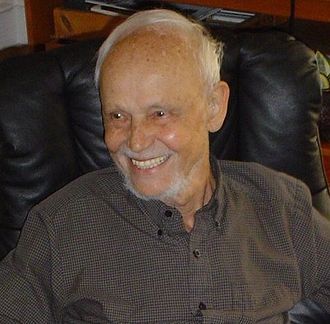 The eminent scholar of religion Huston Smith died on December 30, 2016, at the age of 97, according to The New York Times (January 1, 2017). Smith, as the Times observes, was best known for his textbook The Religions of Man (1958), later abridged and retitled The World's Religions (1991); "a standard textbook in college-level comparative religion classes for half a century" that "sold more than three million copies." A prolific author with wide interests, his books included Cleansing the Doors of Perception (2000), books on Islam, Buddhism, and Christianity, and a memoir, Tales of Wonder (2009). A five-part special devoted to his life and work was broadcast on PBS in 1996.
The eminent scholar of religion Huston Smith died on December 30, 2016, at the age of 97, according to The New York Times (January 1, 2017). Smith, as the Times observes, was best known for his textbook The Religions of Man (1958), later abridged and retitled The World's Religions (1991); "a standard textbook in college-level comparative religion classes for half a century" that "sold more than three million copies." A prolific author with wide interests, his books included Cleansing the Doors of Perception (2000), books on Islam, Buddhism, and Christianity, and a memoir, Tales of Wonder (2009). A five-part special devoted to his life and work was broadcast on PBS in 1996.
"Smith argued that science might not totally explain natural phenomena like evolution," the Times observed. In 1982, in the wake of the decision in McLean v. Arkansas, for example, Smith expressed mixed emotions, writing, "As description — of the fossil record and of the age, continuities and discontinuities in life forms that the record discloses — evolution is true and creationism mistaken. But as an explanation (let's call this evolutionism), neo-Darwinism is largely a failure" (emphasis in original), and rehashing arguments that evolution is astronomically improbable. He was sympathetic to the accusation that it is philosophical overreach to describe evolution as precluding the possibility of divine guidance, and (with the philosopher Alvin Plantinga) successfully lobbied the National Association of Biology Teachers to revise its description of evolution accordingly in 1997. In 2005, before the trial in Kitzmiller v. Dover, he dismissed six-day creationism as "nonsense on stilts" but insisted that "the divine spark" was not susceptible to explanation "by natural selection or chance mutations," adding, "For that you need to turn to religion."
Smith was born in Soochow (Suzhou), China, on May 31, 1919. He earned his A.B. from Central Methodist College in 1940 and his Ph.D. from the University of Chicago in 1945. He was ordained as a minister in the United Methodist Church in 1946, although he also studied Vedanta, Zen Buddhism, and Sufi Islam during his life. He taught philosophy and religion at the University of Denver, Washington University in St. Louis, Massachusetts Institute of Technology, Syracuse University, and finally the University of California, Berkeley, from 1990 onward. He was granted honorary degrees by Franklin College, Lake Forest College, Alaska Pacific University, and Hamline University.
